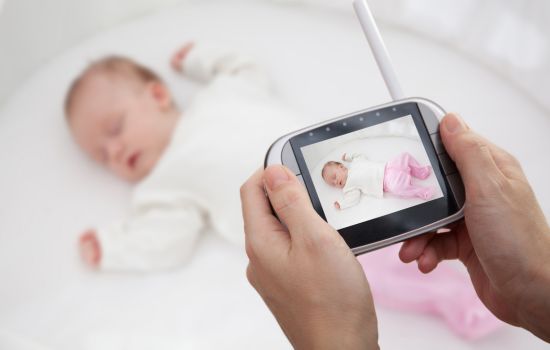When my sister told me she'd found a technological solution for those chaotic moments of the day when you need to take an urgent call while the kids demand constant attention, my first reaction was skepticism.
“An app babysitting my nephews? Please!” I thought. Three months later, after becoming an emergency aunt more times than I can count, I have to admit I was completely wrong.
These digital tools are not intended to replace human caring, but rather to complement our ability to provide responsible care when life presents us with multiple simultaneous challenges.
The Evolution of Family Care in the Digital Age
Our grandmothers raised children with limited resources but strong communities. Our mothers navigated work and home life with close family support. We, the current generation, face dispersed family dynamics, extended work hours, and multiple responsibilities that our ancestors never experienced.
Child monitoring apps emerged as a response to this new family reality. Not because we're worse mothers or more disorganized, but because our social context requires different tools.
In-depth assessment: Four different solutions for different needs
See Also
- Digital Childcare Apps: Your Virtual Assistant for Smart Parenting
- What if you could understand every bark your dog makes?
- Tired of boring conversations? Discover a new chat.
1. KidGuard Family Shield – The Tireless Protector
My discovery: During a family crisis where I had to care for my 5-year-old nephew while working from home, this app literally saved my sanity and my job.
Its incomparable strengths:
- The alert system is intuitive without being alarmist. It notifies you about important activities without bombarding you with unnecessary information.
- The content curation is impeccable. Every video, game, or activity has been evaluated by child development specialists.
- Timers operate with smooth transitions. The child receives progressive prompts: "15 minutes left," "5 minutes to go," "time to put away."
- The platform adapts difficulty according to the child's progress.
Obstacles identified:
- Requires a stable internet connection to function optimally
- The free version restricts use to 40 minutes per day.
- Some premium features cost $6.99 per month
- Does not include features for multiple children simultaneously
Ideal for: Caregivers who prioritize safety and structure without sacrificing flexibility.
Get app:
- Android 👉 Download KidGuard Family Shield
2. IntelliChild Companion – The Understanding Artificial Mind
My initial surprise: Honestly, the idea of artificial intelligence "understanding" a child seemed like science fiction to me. Until I saw how it responded perfectly to my 6-year-old niece's mood swings.
Highlighted innovations:
- Real-time behavioral analysis that detects frustration, boredom, or overstimulation
- Automatic personalization based on each child's unique interaction patterns
- Expansive library that grows based on the child's demonstrated interests
- Integration with smart home devices to create appropriate environments
Notable challenges:
- Demand devices with high technical specifications
- Initial adaptation period of approximately 10 days
- It can be overwhelming for families less familiar with advanced technology.
- Considerable power consumption of the device
Perfect for: Technologically sophisticated households that enjoy experimenting with cutting-edge innovations.
Access:
- Android 👉 Get IntelliChild Companion
- iOS 👉 Get IntelliChild Companion
3. MyCulturalChildhood – The Guardian of Our Traditions
My emotional connection: When I heard my nephew singing “La Llorona” after using this app, and then asking me about his great-grandmother’s Mexican traditions, I knew we had found something special.
Extraordinary elements:
- Authentic narratives created by renowned Latin American writers
- Activities celebrating regional festivals: Carnival, Inti Raymi, Guelaguetza
- Interactive folk music where children learn traditional instruments virtually
- Family recipes adapted for children to “cook” digitally alongside their parents.
Aspects that can be improved:
- Less refined visual resources compared to mass commercial productions
- Relatively slow speed of new content development
- Technical support available only during business hours
- Some activities require adult participation to complete.
Essential for: Families committed to preserving cultural identity while embracing technological modernity.
Find:
- Official portal 👉 Explore MyCulturalChildhood
4. CuidaFácil Express – The Emergency Solution
My pragmatic assessment: It's not meant to be revolutionary, but when you need something reliable immediately (like during a family medical emergency), its simplicity becomes its greatest virtue.
Practical advantages:
- Installation and configuration completed in less than 2 minutes
- Full functionality without internet requirements
- Compatible with older devices that other apps reject
- Interface so intuitive that any family member can use it without explanations
Obvious limitations:
- Basic entertainment catalog without frequent updates
- Lack of advanced monitoring features
- Visual aesthetics that reflect previous generation technology
- No customization based on age or specific preferences
Recommended for: Unforeseen situations, temporary caregivers, or families who prefer straightforward, hassle-free tools.
Get:
- Android 👉 Install CuidaFácil Express
Detailed Comparative Analysis
| Criterion | KidGuard | IntelliChild | MyChildhood | EasyTakeCare |
|---|---|---|---|---|
| Intuitiveness | Excellent | Good | Very good | Outstanding |
| Educational wealth | Outstanding | Exceptional | Excellent | Basic |
| Cultural identity | Regular | Regular | Exceptional | Good |
| Technical sophistication | Very good | Exceptional | Good | Basic |
| Economic accessibility | Good | Regular | Very good | Excellent |
| Multilingual support | Well | Excellent | Outstanding | Regular |
Personal Reflections of a Modern Caregiver
Selecting According to Your Family Reality
After extensive experimentation with these platforms, I have concluded that the optimal choice depends entirely on the specific circumstances of each household:
- Professionals working remotely: KidGuard provides peace of mind during important video conferences
- Tech Enthusiasts: IntelliChild represents the future of AI-assisted care.
- Cultural preservers: MiNiñez connects generations through digitalized traditions
- Pragmatists in trouble: CuidaFácil solves immediate needs without complications
Navigating Modern Maternal Guilt
Let's acknowledge an uncomfortable truth: many of us feel guilty about using screens as caregiving tools. However, I've learned to reframe this perspective. These apps don't represent a lack of maternal dedication, but rather an intelligent adaptation to contemporary demands.
My personal functional protocol:
- Children under 3 years old: Maximum 15 minutes daily, always accompanied
- Preschoolers (3-5 years): Up to 30 minutes, with subsequent review of the content
- Schoolchildren (6-8 years): Maximum 45 minutes, including discussion time on activities carried out
- Tweens (9+ years): Increased flexibility but with regular conversations about responsible use
Successful Implementation: Proven Strategies
Effective initial preparation:
- Explore the app thoroughly before presenting it to your child.
- Set clear expectations about duration and type of use
- Create routines that integrate digital time with physical activities
- Designate specific spaces for technology use
Long-term maintenance:
- Weekly evaluations of the content accessed
- Monthly adjustments based on the child's development and changes in interest
- Regular conversations about age-appropriate digital safety
- Flexibility to modify rules according to changing family circumstances
The Evolution Continues: Emerging Trends
The digital childcare landscape is constantly evolving. The most promising innovations include:
- Educational augmented reality that transforms domestic spaces into interactive classrooms
- Non-invasive biometric monitoring to detect stress or fatigue levels
- Virtual intergenerational collaboration connecting children with distant grandparents
- Neurodiverse Personalization adapting experiences for different learning styles
Starting Your Own Exploration
My top recommendation: Start conservatively. Select an app, use it consistently for three weeks, observe your child's reactions, and adjust as needed.
Remember that these tools work best as complements, never as substitutes for the love, attention, and human presence our little ones need to fully develop.
Modern motherhood and parenting require the courage to experiment with new solutions while holding firm to our core values about what it means to truly care for a child.
References consulted during my research:
- American Academy of Pediatrics (updated guidelines on children's technology)
- Family Digital Security Institute (studies on the impact of educational applications)
- Latin American Network for Conscious Parenting (cultural perspectives on technology)
Valuable additional resources:









